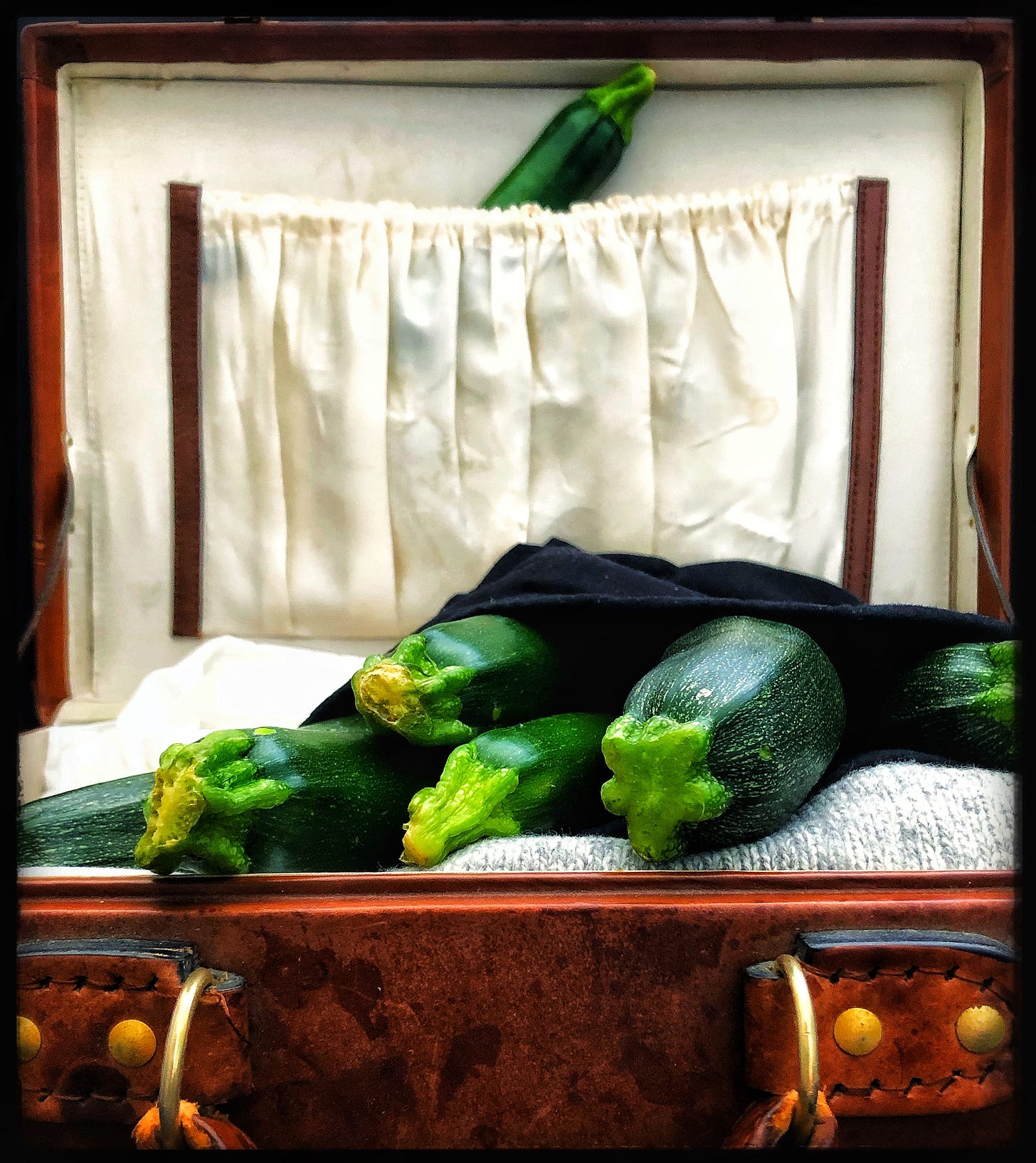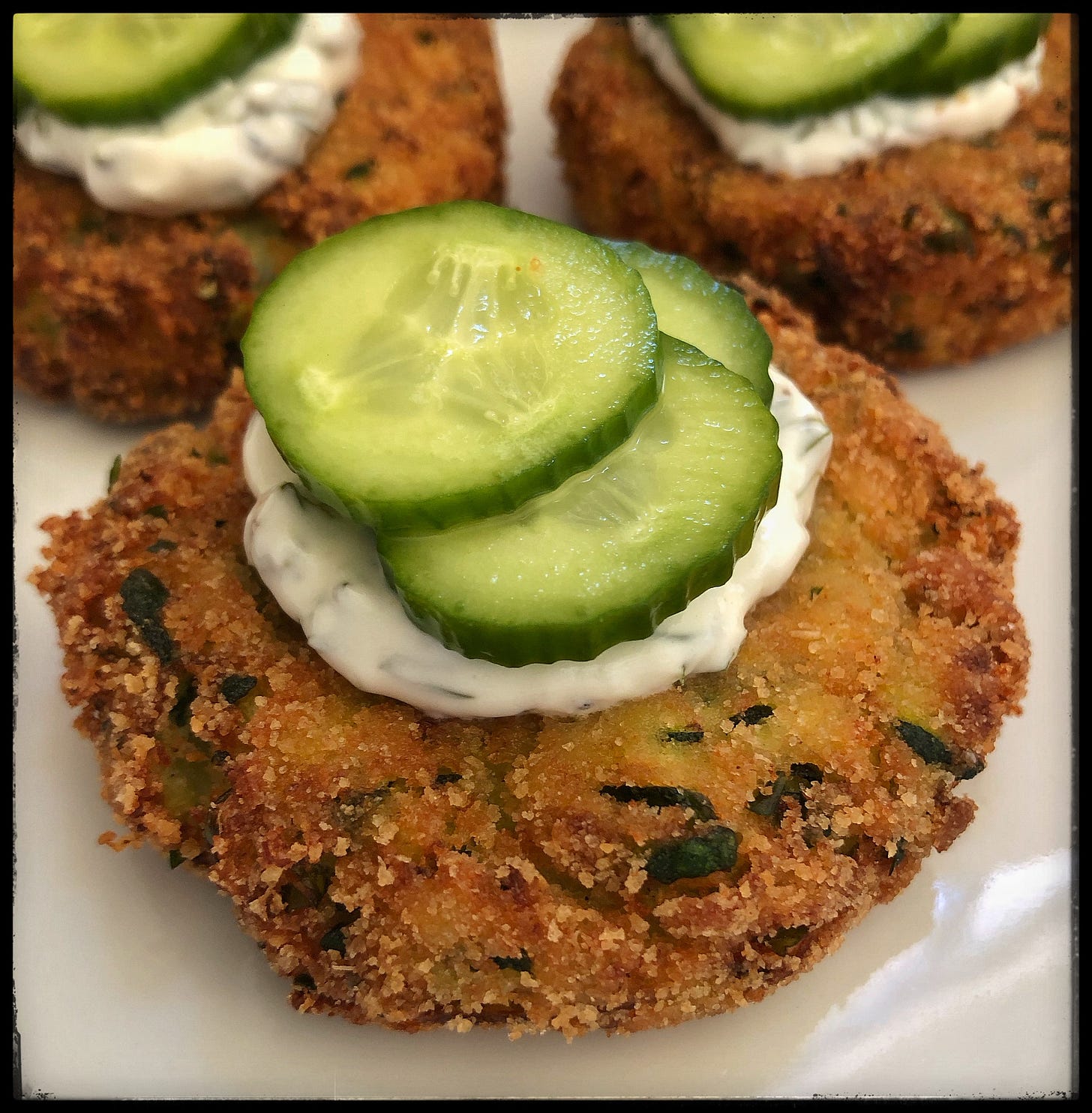My family never knew what to do with the overflow of produce left on our doorstep by neighbors with much greener thumbs than ours. As summer lost its sweaty edge and evenings crept in earlier and milder, the doorbell would ring, and one of us would answer it to find nothing there but a paper bag on the welcome mat filled with things I hated as a child but love now that I have to pay for them: avocados, figs, lemons, tomatoes, artichokes. These were the rarer gifts of the ding dong ditch set. The most frequent vegetal visitor, however, was zucchini. It felt like everyone in the neighborhood except us grew zucchini, which by some incomprehensible twist of logic made us the ideal dumping ground for the horrifying volume of overflow.
My mother, who worked full time and hated cooking, did her best to incorporate these swollen, green ovaries into our dinners, but this invariably meant she sliced them into coins, added not enough seasoning, and “zapped them in the micro-go-round” (her words) until they degraded into a hot, swampy horror.
We weren’t the type of people who would think to roast them or even fry them. The notion of transforming them into something sweet like zucchini bread would have seemed to us absurd, and the word “frittata” wouldn’t enter our vocabularies for at least another decade.
So when the weight of our zucchini burden was too much to bear, those paper bags went straight into the garbage.
Many years later, I found myself working in a very famous and very expensive Greek restaurant in San Francisco, where one of the most popular appetizers on the menu was kolokythokeftedes or, as the non-Greek barbarians would call them, zucchini cakes.
I was more intrigued by the name than the dish itself, as you can well imagine, unless you skipped the first few paragraphs of this post. But one of the things every server trainee this fancy estiatorio was required to do was taste everything on the menu.
Everything.
The grilled octopus, fragrant lamb shanks, and custard filled galaktoboureko, were all marvelous, but I was shocked by how much I enjoyed the zucchini cakes.
What in the name of Demeter did they do to make that bland vegetable of my past taste so…delicious?
It was like the sad, abandoned zucchini from my childhood had snuck into someone’s checked luggage, made its way on Olympic Air to Athens, hopped a slow ferry to Samos, rubbed shoulders with the local edible gourds, and had the best summer of its life.
This was zucchini that had hooked up with a slightly more mature French ex-pat courgette who smoked filterless cigarettes and drank cheap retsina and blew his mind reading Henry Miller as a prelude to making love on a rented sun lounger at the nude beach a mere five minute Vespa ride from his youth hostel.
This was zucchini who returned from his journey happier, more worldly-wise, with a deep, golden tan, and a few discreet scratches on his back.
As the days fly by and his skin hardens and his blood thickens to marrow, he will look around at his zucchini friends who never left home and wonder if they’re happier for never having known adventure. And then he’ll get very quiet (which is admittedly hard for a vegetable of Italian origin) and whisper to himself, “No. I am the lucky one. I have tasted life and it may be short, but it was once exciting and beautiful.”
For the rest of his life, he will think of what he likes to call his “Courgette Summer” and smile.
Until the day comes when he’s washed, shredded, mixed with herbs and cheese, breaded, fried, and ultimately worthy of the name kolokythokeftedes.
Keep reading with a 7-day free trial
Subscribe to Spatchcock to keep reading this post and get 7 days of free access to the full post archives.





